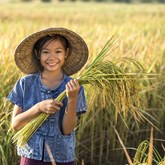Cookies on the Akorn Destination Management website
We use cookies to help you get the most from our site. If you continue without changing your settings, we’ll assume that you’re happy to receive all cookies on our site. However, you can change your cookie settings at any time.
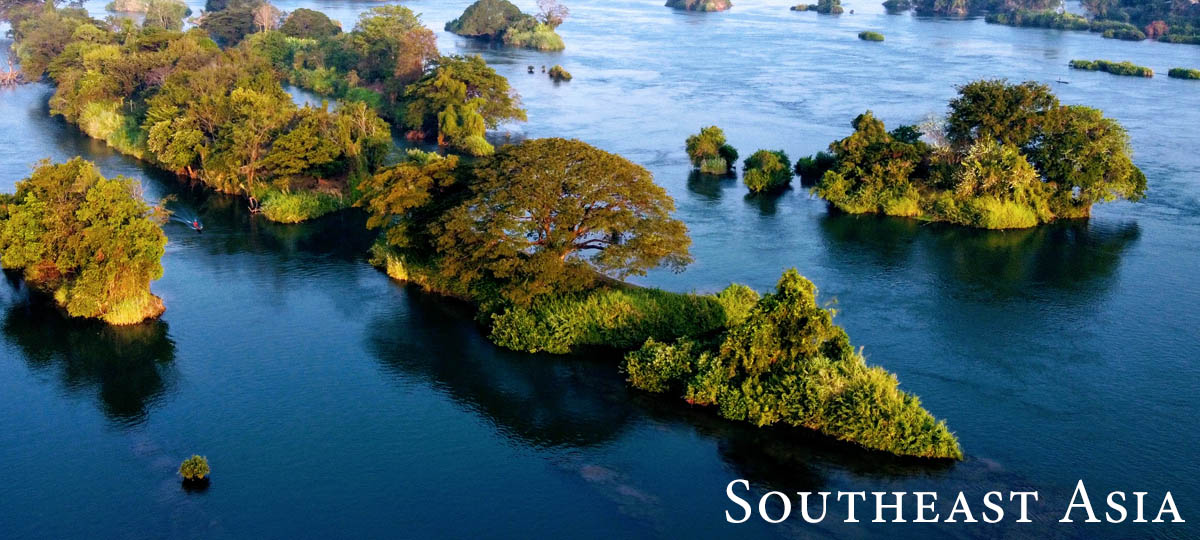
THE INSIDER by Akorn Southeast Asia March 2020
Whether you’re into nature and wildlife or bustling cities full of history and culture, Southeast Asia has it all! Experience 48 hours with us in Ho Chi Minh City, get an INSIDER’s perspective on Cambodia from a journalist and former member of the UN’s Khmer Rouge Tribunal and discover a destination in trend – Ayutthaya, Thailand. Plus, check out our Top 5 most exciting and off-beat adventures on Southeast Asia’s rivers or lakes.
----------------------------------
And a few words from our guests:
“We had the most wonderful time in Thailand. It couldn’t have been a more perfect trip! Everything was so amazing including the hotels, and our guides!"
Adriana L., United States
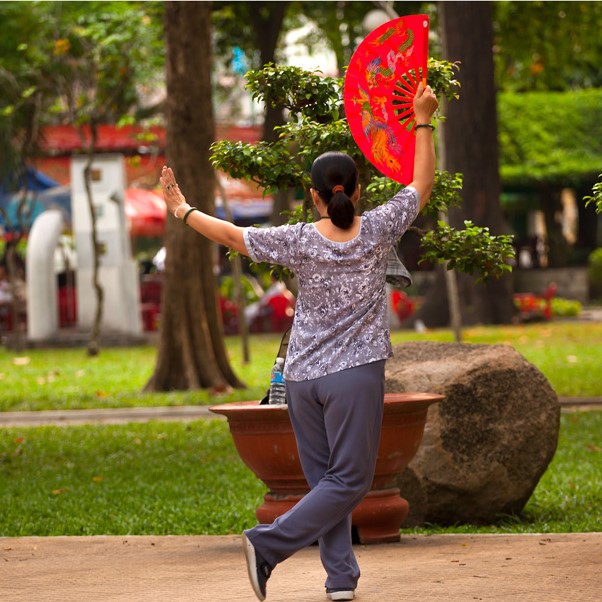
48 Hours in Ho Chi Minh City (Saigon)
From an amazing culinary scene to eclectic architecture and a budding contemporary culture, there is so much to see and do in Vietnam’s buzzing southern metropolis. Here are our tips on how to make the most of your 48 hours in Ho Chi Minh City with Akorn.
Day 1:
Embrace Local Mornings: Start at the break of dawn to see the city slowly waking up. Get your morning hit of caffeine at a Vietnamese café and see the city’s residents, both young and old, play badminton or practice tai chi in the park.
Savor Saigon’s Specialties: Try a Vietnamese artichoke hotpot or seaweed salad at Chay Garden or taste a grandmother’s favorite recipes in a restored French villa at Cuc Gach Quan. For a more local experience, grab a bowl of pho noodles - Ho Chi Minh City’s classic dish - at one of our favorite spots, Pho Binh, or head over to Di Mai for typical street food done well.

Turn Back Time: Walk with Akorn’s local art and cultural expert to hear the city’s tales of drama and intrigue. See the buildings that feature in Ho Chi Minh City’s dynamic past, such as the former French Lieutenant Governor’s residence, the former U.S. Embassy and the Central Post Office where you may even catch a glimpse of Mr. Duong who, at 90 years old, still writes letters for people who can’t write for themselves.
Party With Locals: Ride on the back of a vintage Vespa to experience a quintessential night out in Ho Chi Minh City. Sip cocktails and taste succulent street seafood at the most popular local venues. Try our favorite banh xeo, a kind of Vietnamese savory pancake, and end the day with a few drinks at a hidden cocktail bar with live music by a local band.

Day 2:
Shop Til’ You Drop: Put your bargaining skills to the test with a market-hopping excursion around the city; see locals buying and selling fresh flowers, traditional medicines and even spare parts for your scooter or a new bumper for your car. For a more contemporary experience, browse locally-made ceramics and wooden crafts at Sadec District or stop by 42 Nguyen Hue Street for local fashion and trendy boutiques and cafés.
Go Undercover: Set out on Akorn’s private Secrets of Saigon tour and walk in the footsteps of the city’s wartime spies and undercover operatives who planned covert missions from the top of a noodle restaurant and built trapdoors in their homes that hid underground weapons chambers.

Hit the Streets: Enjoy a leisurely afternoon strolling through an off-beat part of town where a local artist has splashed the walls with his brightly-colored masterpieces. Savor Saigon’s coffee culture with a stop at a traditional place that has been roasting and brewing coffee for three generations and see real life pass by in this residential area.
Make Time for a Curtain Call: Be dazzled by a spectacle of Vietnamese dance and acrobatics at the Saigon Opera House. The AO Show is a ‘Cirque du Soleil’ style production that combines live southern Vietnamese music with bamboo cirque acts and contemporary dance – truly a mesmerizing treat for the eyes.
Make the most of your Vietnam experience and discover more of Vietnam with Akorn.
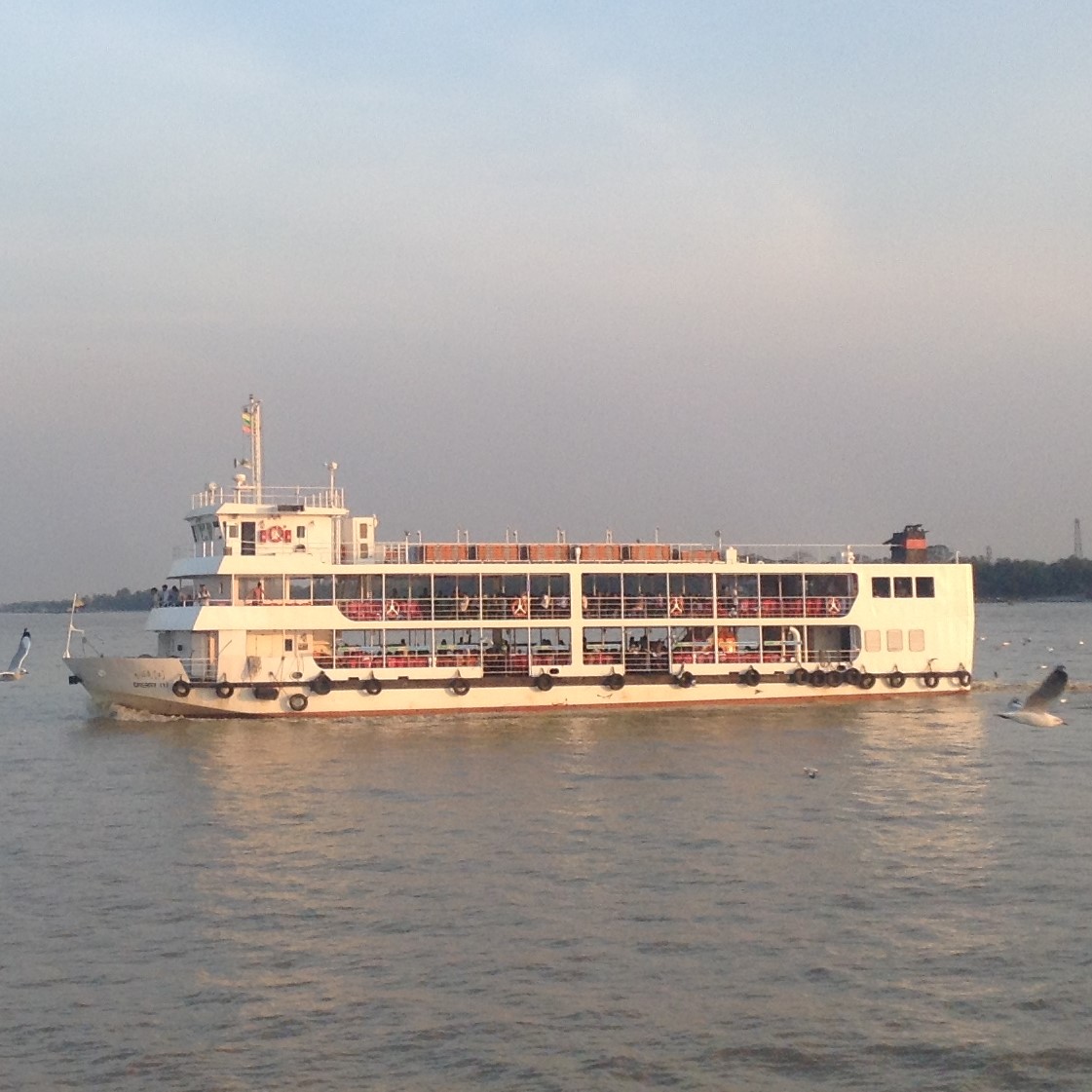
Our Top 5: Off-Beat Southeast Asian Adventures on Water
Whether you are a nature lover, a wildlife enthusiast or simply a cultural explorer, Southeast Asia’s rivers and lakes offer some of the world’s most unique and enriching experiences. From exotic wildlife to bustling cityscapes and traditional floating vessels, here are our Top 5 adventures on water in Southeast Asia.
1. Ride Like a Local in Yangon, Myanmar
Busy, chaotic and typically Yangon; the ferry ride across the Yangon River to the sleepy town of Dallah is an experience to remember. Crowds of locals busily jostle their way on board as hawkers hustle to sell everything from sun hats and bags to paan (areca nuts wrapped in betel leaf) and other portable street snacks. Once on the other side, you can hop on a trishaw for a ride around the town and visit a social enterprise that upcycles discarded inner tubes and plastic bags, turning them into chic coin purses and baskets.

2. A Well-Rounded Hoi An Adventure, Vietnam
Take a thung chai, or Vietnamese “basket boat” for a spin on the Thu Bon River – literally! In Hoi An, Vietnam, these woven bamboo tubs that were an ingenious way of evading taxes during the French colonial era; fishermen avoided hefty boat ownership fees by using these “baskets” instead of boats. Try paddling down the river in a round-bottomed bucket and you will inevitably end up whirling around in circles! But as you spend more time with the local fishermen, you will discover their peaceful lifestyle, the traditional way they catch fish and their simple trick for maneuvering these oddly-shaped vessels.

3. The Floating Forest of Tonle Sap, Cambodia
One of the last remaining breeding grounds for the globally threatened milky stork and the spot-billed pelican species, Prek Toal is a bird lovers paradise. Located in a corner of Cambodia’s great Tonle Sap Lake, this vast sanctuary is a great place to reconnect with the wonders of nature. Ride in a custom-built, shallow-drafted boat designed for park rangers to access the furthest reaches of this timeless, flooded forest where a floating fishing community lives in relative isolation with their own over-water church, schools and shops. The most rewarding moment comes with a drink in hand and tasty nibbles on the boat while watching the sun set over the tranquil lake.

4. Merchants of Bangkok, Thailand
Bangkok, the City of Angels, has a million stories to tell and one of the best ways to uncover them is to travel by private water limousine through some of the city’s oldest and most traditional neighborhoods. Harking back to a time when the river bustled with European merchant ships and Chinese traders, the villages on the edge of the city’s rivers and canals (klongs) reveal some of the humble, yet fascinating tales of lives lived here. One of our favorite places is a village where Portuguese migrants settled and passed on their unique culture and cuisine to their families who still live here, over 200 years later.

5. The Beauty of 4,000 Islands in Laos
Amid the cascading streams and lashing waterfalls of southern Laos, you may just catch sight of the rare Irrawaddy dolphins that make their home here among the crags. This rarely visited corner of the world is where the mighty Mekong River diverges around 4,000 tiny inland islands, creating the ideal place for an off-beat adventure; a private boat journey with short walks to Southeast Asia’s largest waterfalls and a bike ride around an island with an abandoned railway and a collection of colonial French buildings. While the Irrawaddy dolphins come and go year-round, the best time to spot them is between January and May.

Eyes on Cambodia: Perspectives from a Phnom Penh Correspondent
A former member of the United Nations-sanctioned Khmer Rouge Tribunal, Peter Ford is a journalist and environmental sustainability consultant in Cambodia who has spent the last six years photographing, documenting and commenting on the stories and events that are shaping Cambodia today. We had the privilege to sit down with the British writer to chat about his personal experiences and thoughts about the nation he now calls home.
Q: What was your first impression of Cambodia?
A: I was working with an NGO in Senegal and although I had worked in Japan, Kazakhstan and Africa before, I knew very little about Southeast Asia and especially Cambodia. So when I saw the opportunity to work with the United Nations at the Khmer Rouge Tribunal in 2014, I was excited to learn more. My first thought was how dynamic and bustling Phnom Penh was and especially how much infrastructure there was here. Besides images of palm trees, rice fields, beaches and temples, I didn’t know what to expect from Cambodia, but I was captivated by the vibrancy of the country and the constant hustle.
Q: What made you decide to stay and what do you love most about your adopted home?
A: Cambodia is a fascinating place to live – it is truly hard to leave! After my contract at the tribunal was over, I still had a desire to learn more about the country and culture. My day-to-day work had been focused on the horrors of the Khmer Rouge period, and I instead wanted to experience more of the present, and what the future of Cambodia might be.
The varied expat community here, from NGO, education, government and private business, ensures some great restaurants and bars (and plenty of sports – Phnom Penh just got an inline hockey rink!), and this all comes in addition to the every-day warmth of Cambodians; visiting centuries-old temples, exploring vast national parks, enjoying evening aerobics by the river, impromptu beers and karaoke (of varying musical talent) with neighbors. There is always a new experience to be had in Cambodia.
Q: Over the years, you have covered a wide range of stories in Cambodia. Was there a particular story that stays with you?
A: My reporting has taken me to almost every province (and I have also done a lot of traveling for fun) and covered topics from forest preservation efforts and transport development to dodgy land sales and community evictions. The first article I wrote for the (unfortunately now shuttered Cambodia Daily newspaper) was a look at an airport built during the Khmer Rouge years in rural Cambodia. It was my first experience talking directly with witnesses and survivors about their memories. Their willingness to share their stories was truly heart-warming, and their recollections of the terror was sobering.
In 2019, I visited a coastal community to learn more about their efforts to combat pollution and over-fishing. While the challenge ahead is huge, I left feeling inspired by the energy and passion of the community; their attitude makes positive solutions possible.
Q: How do you see the nation developing in the future?
A: Since the final surrender of the Khmer Rouge in 1998, the country has largely been at peace, under the dominance of the main political party led by Prime Minister Hun Sen. Industry continues to develop across the country – Nintendo Switch consoles are being assembled here now, and the agriculture sector is undergoing a much-needed injection of investment and technology. Cambodia is still trying to find its place in the region. Time will tell if it will become a logistics hub as part of China’s Belt and Road Initiative, a manufacturing powerhouse, a mega tourist attraction, or a combination of all three.
Angkor Wat and the temples will always attract visitors, and Cambodia’s natural beauty can remain for future generations if properly protected. With increased road and rail connections with Thailand and Vietnam, it will be even easier to visit the country, and hopefully the 15 million Cambodians who live here can truly benefit as Cambodia continues along its development path.
Q: What are your top places to eat, shop and hangout in Phnom Penh?
A: I live a stone’s throw away from Bassac Lane – a popular expat bar and restaurant street just south of the Independence Monument. With great Happy Hour deals, delicious Indian, Japanese and Italian food, there is something here to suit every mood and craving. Phnom Penh also has some surprisingly good Tex-Mex and restaurants featuring food from Ethiopia, Syria, Nigeria and Greece (not to mention all the local and regional variations).
As a vegetarian, I love eating at the small Chinese-Buddhist vegetarian restaurants that dot the city. Noodle soups, fried rice and plenty of mushrooms, tofu and fresh vegetables ensure a great simple meal, and it’s a great way to eat among local residents.
As for hanging out, MetaHouse (the German cultural center near the National Museum) is a hub for events including art, comedy, movies and discussions. An evening walk along the riverside is certainly never boring – leave your camera at home and just absorb the various sights and sounds.
Arrange a private, one-on-one chat with Peter Ford for a more in-depth perspective on Cambodia, its people and its politics. Drinks with Peter can be easily added as part of your next Akorn journey to Phnom Penh.
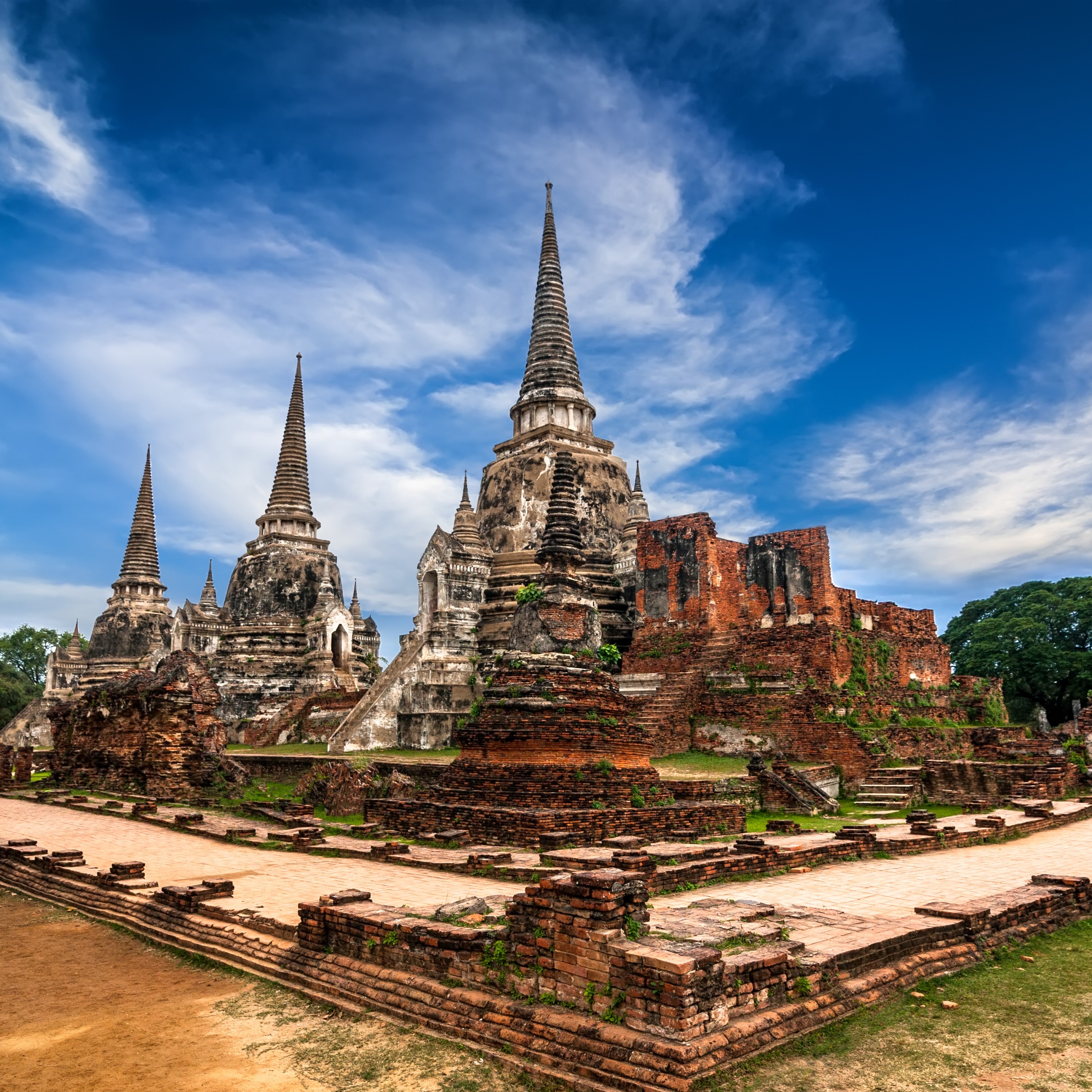
Destinations to Watch: Ayutthaya, Thailand
Crumbling red brick ruins coupled with chic new, Instagram-worthy cafés and boutiques, Ayutthaya is the destination we are watching out for this year. The former capital of the Siamese kingdom, Ayutthaya is steeped in centuries of history but is now opening up to a more trendy cultural vibe.
Experience Ayutthaya the Akorn way! Be sure to stop by The Summer House, a charming little riverside café that serves light Thai meals along with mouthwatering cakes and desserts. See the iconic Buddha head wrapped in the roots of a tree, visit the former Grand Palace and try a local, hand-made pancake-like treat which is a specialty of the region.
The drive from Bangkok takes just about an hour, but we prefer the more scenic route, taking a helicopter for a 30-minute flight over provincial Thailand. If you have more time, why not take the more leisurely journey with an overnight cruise along the Chao Phraya River, watching the urban city sprawl slowly transform into more quiet, rural scenes. Ask about our Treasures of Ayutthaya or Old Kingdom by Helicopter experiences or create a custom journey today.
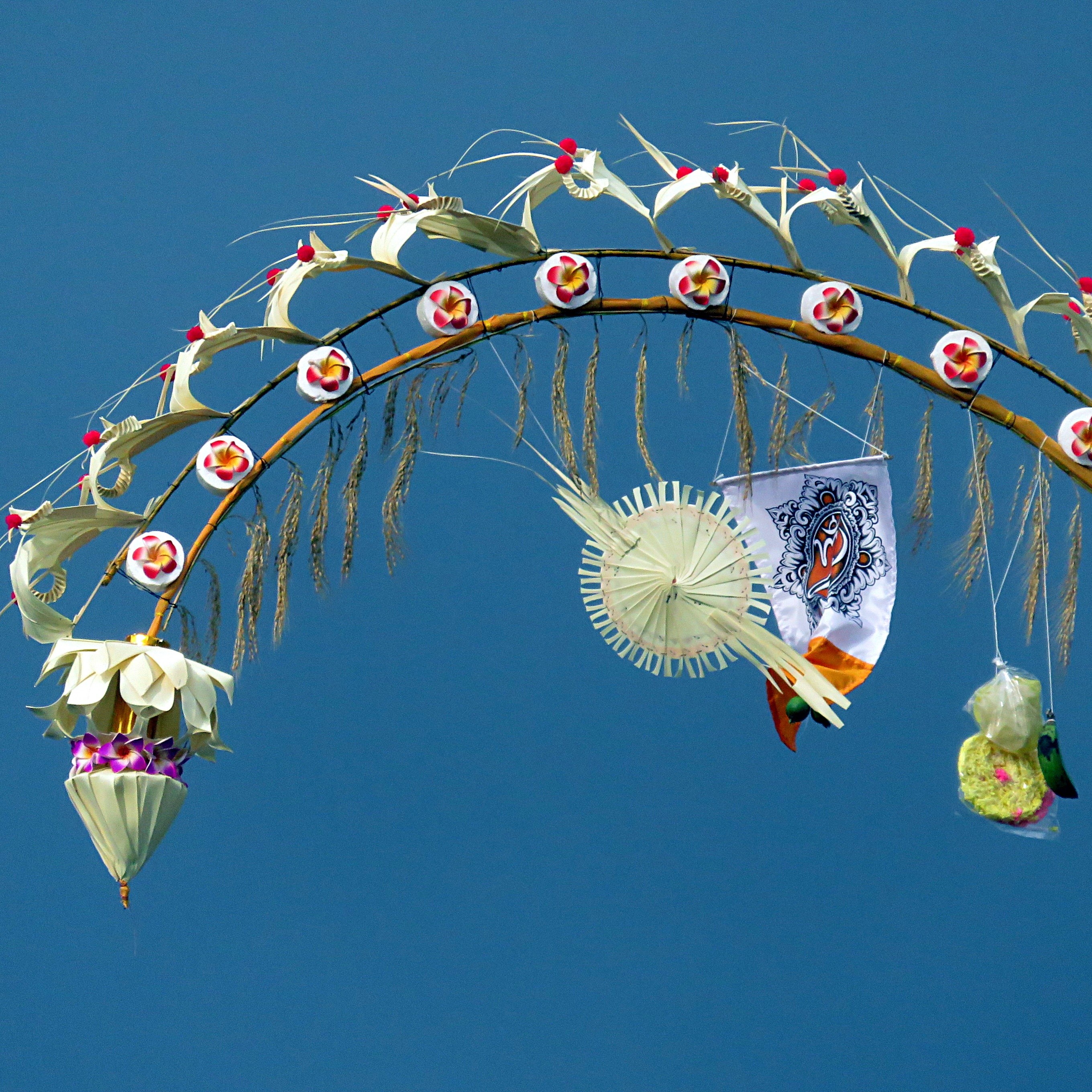
More INSIDER News from Around the Region
● On 25 March 2020, Bali, Indonesia celebrates Nyepi, a "Day of Silence" where locals fast and meditate to honor the start of the New Year according to the Balinese calendar.
● Thailand prepares for the biannual Bangkok Art Biennale which returns in October 2020 while Vanishing Bangkok, a black and white photo exhibition highlighting the city’s forgotten backstreets opens 12 March 2020.
● Azerai’s third property in Vietnam is set to open this summer; Azerai Ke Ga Bay is a secluded oceanfront retreat located in the southern coastal region of Phan Thiet.
● Read our update about COVID-19.
----------------------------------
For more information about anything you have seen in this newsletter, contact us:
Looking for more INSIDER news, ideas and travel information?
|
THE INSIDER by Akorn Southeast Asia Give back with our new philanthropy project in Luang Prabang and discover Southeast Asia’s Creative Cities. We also reveal our Top 5 family getaways across the region and chat with one of the biggest stars in the Yangon dining scene. |
THE INSIDER by Akorn Southeast Asia Experience one of Southeast Asia’s most indulgent moments – afternoon tea. Meet a top Vietnamese chef who has developed a loyal following in Hoi An and around the world, discover how "we do" 48 hours in Phnom Penh and uncover the true spirit of Balinese rice fields. |
THE INSIDER by Akorn Southeast Asia Experience Bangkok’s unconventional moments, go off the beaten track to Laos’ ethical elephant sanctuary, taste our Top 5 Vietnamese street eats and meet a textiles expert in Indonesia. |
- Share us on
- © Abercrombie & Kent Ltd. All rights reserved
- About
- Privacy Notice
- Cookie Policy
- Terms of Use
- Data Processing Agreement

